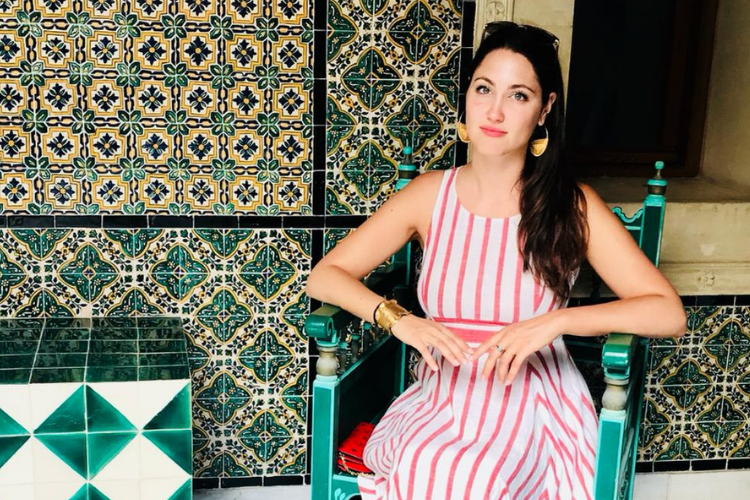
A Modern Esther
Every year, celebrating Purim reminds us of the story of how a Jewish woman became the Queen of Persia and saved her people with her wisdom, dedication and heart. I was honored to chat with Jackie Zarine Mostny, a modern day Persian Queen whose lineage and family come from the town of Shushan, modern day Hamadan in Northern Iran. She’s continuing in the rich tradition of the Persian Jewish community, upheld by the strength of women in the legacy of Queen Esther.
Jackie’s built a career in supporting women-led initiatives, from hosting her own networking events for women in the cannabis industry, supporting women learning more about their monthly cycles in a partnership at Thinx Underwear, to coaching women to start their own Rosh Chodesh Circles with At The Well. Whatever industry she’s in, she finds a way to make this passion a centerpiece of her work.
Jackie was born in San Francisco to a family of immigrants–her father’s family escaping from Nazi Germany, with a pit stop in Chile, and her mother’s family emigrating from Iran. Jackie’s upbringing, unique in its cultural blend, is one that she deeply values through her relationships with her elders. Being able to cook traditional Persian cuisine and learn stories from her grandparents brings her joy with each visit to their home.
Reflecting on what Persian identity means to her, Jackie shares, “For me, it’s about being proud of your roots, culture and family lineage. In Persian culture, family lineage is something that you are very much a part of. Every person represents a piece of the family line.” Jackie can articulate her family tree dating more than seven generations.
“My mom is the first one not born in modern day Hamadan, which used to be called Ekbatan and then before that Shushan,” she says. “Hamadan used to be a traditional Jewish place and my family were landowners and big pillars of the Jewish community there.”
“I asked my grandmother what they did for Purim there and she shared that they would get all dressed up and go to Esther’s tomb, sing Purim songs with rattles, and make special cinnamon spiced cookies with cardamom,” she adds.
The intersection of Persian and Jewish identity give Jackie a doubly rich tradition. Not only does she come from a vibrant Jewish lineage, but also from a deep Persian culture. “Persian identity is being all in.” She explains that between the exquisite art, the delicious food and the nourishing hosting etiquette, Persian culture is filled with abundance, beauty and care. The beautifying aesthetic eye of Persian tradition reveals itself in the intricate rugs, the detail oriented architecture, and the lavish designs. Persian food is made of “thousands of years of perfection” using local and high quality food such as pomegranate, walnuts, and saffron.
Traditionally, Persians had bahg— a garden that they would invite guests over for tea and fruit. This garden, typically filled with roses, would create a sense of pride. Hosting is almost an obligation in Persian culture. Celebration of life is key, bringing people together to share music, poetry, and speeches. Mehmuni is a common word used to describe this sense of hospitality. These qualities of Persian culture travel with Jackie to her life in the US and Israel. Even without the Persian garden, Jackie hosts her community with abundant nourishment, care and love.
Though the city where they are from has been bombed and destroyed, Jackie would love to one day visit her ancestral land with her family. But with institutional antisemitism and sexism in the Iranian government, being a Persian Jewish woman does not make her a great candidate to visit. This loss of homeland can be disorienting: “Finding a sense of belonging is a challenge”, she says.
Jackie finds inspiration from the fierce, strong and brilliant women of Persia. Traditional gender roles have in the past assigned women to the home, yet women are given freedom in running that space. It becomes their domain to express themselves and become the matriarch of the family line. “Matriarchs in Persian families have a huge role to bring the family together. Not only are they cooking, cleaning, organizing, making things beautiful, they really have the vision and make it come to life. There is definitely a respect for women’s creative self expression.” This is what Jackie brings to her life in the business, health and Jewish communities.
For her, the Persian Jewish Queen lineage from the time of Esther continues to live on– and evolve.



